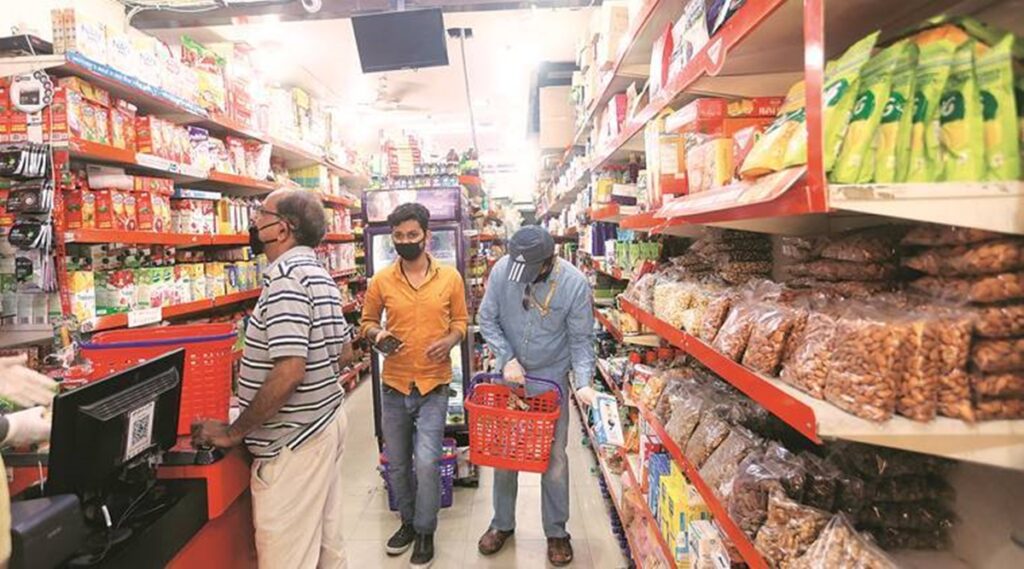Tech startups aided by venture capital (VC) have lately been eyeing a huge unexplored retail market opportunity in the country, which has remained unorganised for a long time. The $600-billion grocery retail market is majorly commanded by some 15-20 million kirana and small mom-and-pop stores. These small stores account for more than 80% of the overall retail industry itself, according to a brokerage report on the B2B retail market published by BofA Securities in June this year.
These numbers clearly prove to be a large distribution opportunity for start-ups in the B2B retail space, and for the last few years, several models have cropped up in India that have been trying to disrupt the supply chain to kiranas and small shops. While most kirana-focused B2B startups such as Price Company, DealShare, ShopKirana and others are focused on becoming alternative suppliers or PoS software providers to kiranas, Gurugram-based kirana-tech start-up 1K Kirana Bazaar is taking the franchisee route to crack the market opportunity. Founded in 2018 by Kumar Sangeetesh, Sachin Sharma and Abhishek Halder, the startup launched with an aim of serving the aspirations of the consumers of India’s smaller cities and towns.
With the growing need of going closer to its target demographic, 1K Kirana opened its first franchise store in early 2020. Fuelled by their $7-million Series A funding in August 2021, and a recent $25-million fund-raise from Info Edge, Alpha Wave and Kae Capital, the startup has served more than a million consumers across more than 25 districts across Delhi, Haryana, Rajasthan and Uttar Pradesh through a network of more than 1,000 franchise stores. Speaking to FE, Sangeetesh said that most kirana shops have a net take-home margin of just around 5% every month, and his business model is focused on gradually increasing the margin for kirana owners.
“While doing our market research, we realised that the average monthly revenue for kiranas is Rs 3 lakh, and if you take that 5% net margin that comes to just around Rs 15,000-20,000 per month. That’s almost similar to the minimum wage for a blue-collar worker in states like Haryana, who works eight-nine hours in a warehouse,” Sangeetesh added. The 1K Kirana Bazaar model is a leaf taken out of the OYO Rooms playbook, where the startup comes in and re-brands an ‘underutilised’ asset to make it more marketable and accessible to new consumers.
Just like how OYO takes over the entire hotel or a few hotel rooms and standardises the end product, 1K Kirana takes over the kirana store as a franchise partner. The startup also owns and operates its own warehouses that are used as centralised facilities to stock kirana franchisees nearby. “Our current warehouse expansion plans are focused at a district level within states and we only cater to Tier-2 and below geographies currently.
Once a warehouse is set up, we then go and acquire franchise partners near the warehouse geography. Currently, we are expanding in Rajasthan and Punjab and we are already present in 18 out of the 20 districts in Haryana. Next, we will expand to Western UP and Uttarakhand,” Sangeetesh said.
The kirana-tech startup works on a revenue-share model, and not on a commission model that franchisers usually operate on. With OYO Rooms, the hotel aggregator usually takes a considerable commission cut on a monthly basis, but 1K Kirana instead takes a small revenue share from the franchise partner. The kirana owner also has access to a centralised order-management app, where he or she places orders for supplies online, which are then delivered in less than 24 hours to the store.
There is also a consumer-facing app offered by 1K Kirana, where users can view nearby stores, place an online order, and get it picked up directly from the kirana store. Home deliveries, if any, are managed and provided by the kirana partner themselves. “We don’t take a commission from kiranas on their supply orders.
So we buy goods and supplies directly from the brand or retailer at a wholesale rate. The kirana franchisee sets the final price for the consumers and Kirana will make a profit on the consumer purchases offline,” Sangeetesh added. Apart from providing supplies to stores, 1K Kirana also takes care of localised marketing for the franchise partners.
The startup carries out offline marketing initiatives in hyperlocal geographies that it is present in. “When we started marketing campaigns to increase footfall to the franchise stores, it was entirely a door-to-door pamphlet-distribution kind of campaign, and also involved hiring autos with loudspeakers that went around announcing the deals in that area. We then eventually also began digital and social media marketing as well, to acquire consumers directly through our consumer-facing app,” according to Sangeetesh.
In FY22, 1K Kirana achieved an annual revenue rate of Rs 300 crore and is currently targeting to hit Rs 1,000 crore in ARR through expansion plans into new geographies and scaling its franchise presence. Sangeetesh said the company has already scaled up its warehouse capacity from 200,000 sq ft to around 600,000 sq ft currently to meet those revenue targets. .
From: financialexpress
URL: https://www.financialexpress.com/industry/sme/1k-kirana-bazaar-disrupting-b2b-grocery-supply-through-franchise-model/2573348/
